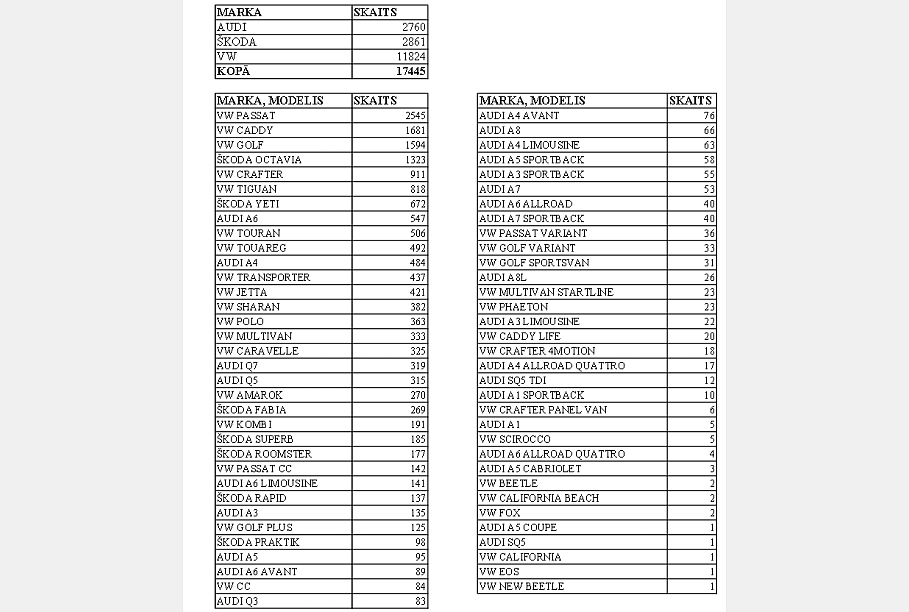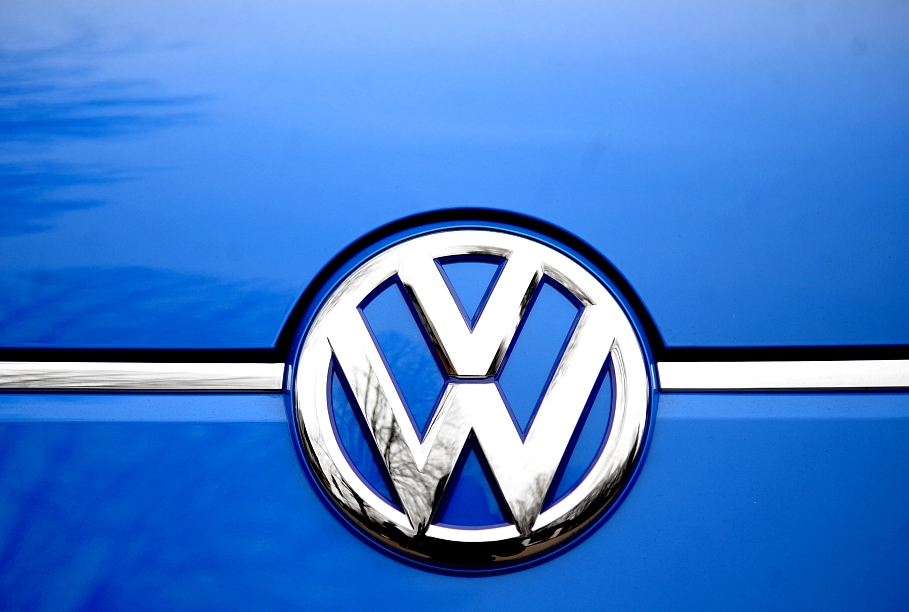The risk group consists not only of Volkswagen cars, but also Škoda, Audi and Seat, and the cars include light trucks as well.
The dealers say that the number of affected cars is less than 17,500 but admit that at least 7,000 cars are hit by the exhaust cheat.
Once the list of affected cars is published, it'll be impossible to pass the yearly roadworthiness test without a slip from the dealer proving that the defect has been averted.
The cheat, related to software that 'knows' if a car is about to undergo emissions tests and subsequently makes the engine operate in a more ecological mode, allowed the car to save gas while increasing the emission of certain toxic gases by up to 40 times.
The defect was discovered by US authorities and was found out only in a limited number of models. The scandal quickly went to Europe, and several car models released since 2009 came under scrutiny over suspicion of using similar software.
On Wednesday, 225,000 Volkswagen cars were recalled in Sweden, while 1.2m cars had been previously recalled in the United Kingdom. Volkswagen dealers in Italy, Belgium, Denmark and the Netherlands have halted sales of numerous diesel-powered cars. According to Volkswagen, the total number of cars that come with the faulty software is about 11m.
Among these vehicles are about 5m Volkswagen, 2.1m Audi, 1.2m Škoda and 0.7m Seat passenger cars, as well as about 1.8m light trucks and trucks are hit as well. Most of these were sold on the European market. As of now, according to the company and notices by national monitoring institutions, only cars with the popular EA189 engine, which were sold as conforming to the exhaust and fuel efficiency standard Euro5.
At the moment a total of 17,445 passenger cars and light trucks are registered that have diesel engines of the types produced by Volkswagen since 2009, LSM's Russian-language website found out at the Road Traffic and Safety Directorate.
Of these, 11,824 are VW models, 2861 - Škoda, while 2760 are Audi cars.
The most popular of these models are VW Passat, of which there are 2545, VW Caddy - 1681, VW Golf - 1594, Škoda Octavia - 1323, and VW Crafter - 911. The statistic includes cars that were bought unused in Latvia, along with cars that were brought into Latvia from abroad.
According to the written statement by the local Volkswagen dealer Moller Auto, received by Latvian Radio 4, there are 3,145 passenger cars, 1,288 light trucks and 654 Audi cars affected by the exhaust cheat.
Anda Budļevska, a representative of Moller Auto, told Latvian Radio 4 that the statistic is related to cars that were sold in Latvia brand new. Used cars aren't included in this statistic.
While Ģirts Avotiņš, representative to Karlo Motors, the country's Škoda dealer, told that there are about 2,500 such cars in Latvia, including used ones, and a number of them could be abroad by now.
Both local dealers and Volkswagen maintain that these cars can be used safely, and that the automotive concern is working at fixing the defect. Their plan, along with a list of affected models and recommendations to their owners, is to be published in October (German sources set the date to October 7). Volkswagen will fund the procedures required to remove the defect.
However, owners will have face at least a minor nuisance, that is, passing the roadworthiness test.
Agnese Korbe, a representative of the Latvian Road Traffic and Safety Directorate (CSDD) told LSM's Russian website that the course of action of the institution depends on Volkswagen.
"It all depends on how the manufacturer will be solving the problem. A similar situation happened a few years ago with another car brand. When we learned the method of solving the problem and what brands were affected, we sent the car owners instructions about what to do," she said.
"At the moment all we can say is, turn to your dealer," Korbe added.
When LSM's Russian version called the technical management of CSDD directly, they were given a more straightforward answer: "At the moment there are no problems for VW, Škoda, Audi and other cars to pass the roadworthiness tests — until the manufacturer doesn't publish its official blacklist."
"As of now you can put your worries aside and drive to the roadworthiness test. But when Volkswagen will publish the official list... Usually in these cases the cars are recalled. Then the dealer solves the problem, either by providing [car owners] with another vehicle or by fixing the defect and giving a slip that certifies that the car is in order."
As reported, Kaspars Gerhards (National Alliance), the Environmental Protection and Regional Development Minister, told Latvian Television the following:
"We don't make these cars. That's why, if the Germans conclude that there are any problems, these problems will be European. And Brussels will decide upon the course of action. If this is confirmed, it'll be quite a scandal."
Furthermore, upgrading the engine to the required 'greenness level' will most likely reduce the cars' fuel efficiency.
The Road Traffic and Safety Directorate supplied a list of the possibly affected car brands (marka) and their models (modelis):






























